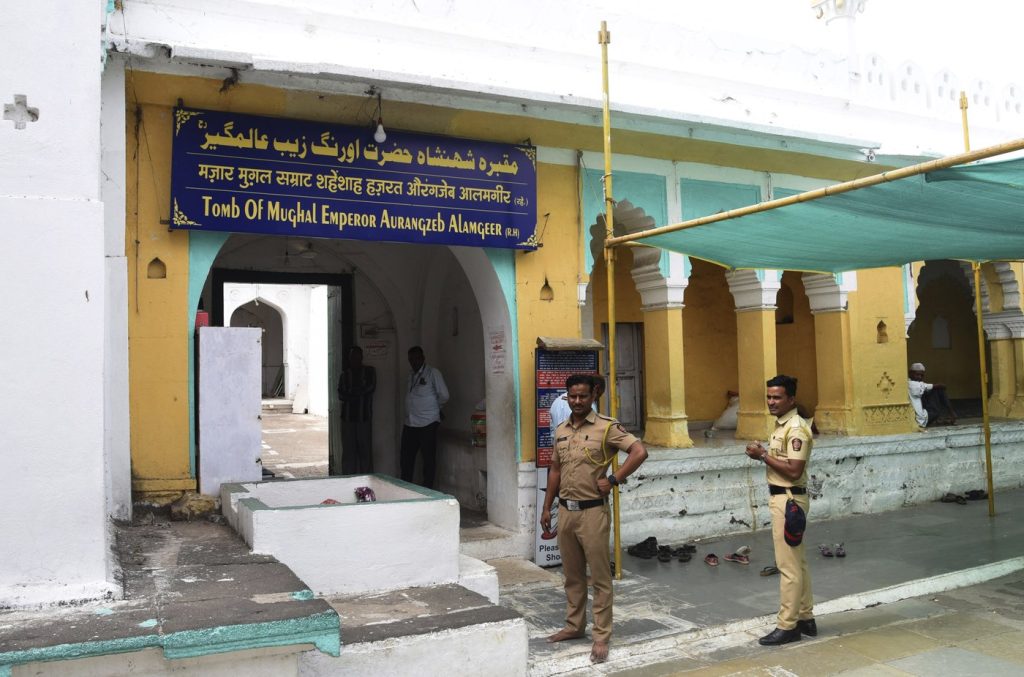NEW DELHI (AP) — An indefinite curfew was imposed in parts of Nagpur, a city in western India, following sectarian clashes that erupted after protests organized by Hindu nationalist groups advocating for the demolition of the tomb of Aurangzeb, a 17th-century Muslim Mughal ruler. The violence occurred on Monday, as tensions rose during a protest demanding the destruction of Aurangzeb's tomb, which is located in Chhatrapati Sambhaji Nagar city, approximately 500 kilometers (310 miles) from Nagpur.
The clashes resulted in injuries to at least 34 police personnel and five civilians, while numerous houses and vehicles sustained damage. Authorities reported that at least 50 individuals have been detained in connection with the violence. Maharashtra's chief minister, Devendra Fadnavis, indicated that the clashes were triggered by rumors alleging that protestors had burned items with religious significance, specifically referencing the Quran.
Aurangzeb's historical legacy is contentious among India’s Hindu nationalists, who assert that he persecuted Hindus during his reign in the 17th century. However, some historians argue that such narratives have been exaggerated. The current political climate, under Prime Minister Narendra Modi, has seen a rise in tensions between Hindus and Muslims, particularly related to Aurangzeb. Modi has previously invoked Aurangzeb in his speeches, where he accuses the Mughal ruler of alleged persecution against Hindus, further inflaming societal divisions.
The release of the Bollywood film "Chhaava," an action movie based on a Hindu warrior opposing Aurangzeb, has also intensified these tensions. Critics of the film argue that it aligns with a divisive narrative that exacerbates religious rifts within the nation. Rights organizations have noted that attacks on minorities, particularly Muslims, have become more pronounced during Modi's tenure, accusing him of implementing discriminatory policies targeting India's significant Muslim population.
The ruling Bharatiya Janata Party (BJP), led by Modi, has rejected claims of discrimination. Incidents of Hindu extremists targeting Muslim places of worship across India have become increasingly common, with several famous mosques claimed to have been built atop historic Hindu temples. Many of these disputes are currently in the courts, reflecting an ongoing conflict over religious and historical narratives.
Last year, Modi fulfilled a long-standing demand from Hindu nationalists by inaugurating a temple at a controversial site in northern India’s Ayodhya, where the 16th-century Babri mosque had been demolished by Hindu mobs in 1992. The site is believed by many Hindus to be the birthplace of the deity Ram, making it a focal point for Hindu nationalist aspirations.
The escalating tensions surrounding Aurangzeb's tomb and the associated violence in Nagpur underscore the fragile fabric of communal relations in contemporary India. The situation highlights the continuing debate over historical figures and their relevance in today's sociopolitical landscape, particularly concerning religious identity and nationalism.
Sheikh Saaliq, The Associated Press










